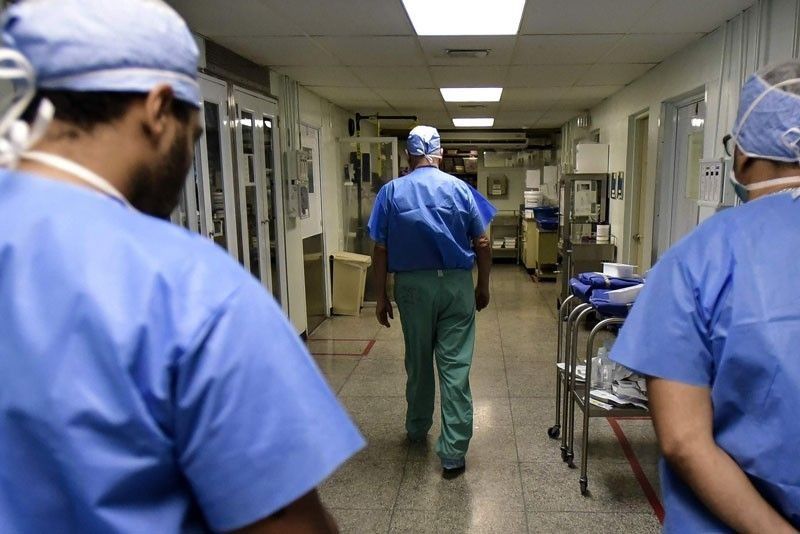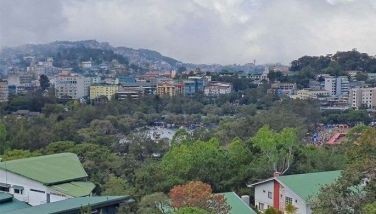Private hospitals doubt TRAIN 2 will benefit them

MANILA, Philippines — The Private Hospitals Association Inc. (PHAPi) is cool to the proposed Tax Reform for Attracting Better and High-quality Opportunities (TRABAHO) bill that seeks to provide incentives to well performing non-profit private hospitals and schools.
This came as Speaker Gloria Macapagal Arroyo assured export-oriented companies last week that they would not lose their tax and other fiscal incentives under the proposed package 2 of the administration’s Tax Reform for Acceleration and Inclusion (TRAIN) program.
In an interview yesterday, PHAPi president Rustico Jimenez said they do not believe that the proposed measure will be beneficial to private hospitals.
“From the looks of it, it’s good. But until it is approved and actually implemented, we don’t want to raise our hopes high. We don’t want to be disappointed,” he noted.
Under the bill, these institutions that adhere to high standards of service will be given incentives.
Criteria will be set by appropriate government agencies to determine which schools and hospitals can avail themselves of the program.
According to Jimenez, the government has been implementing a system that supposedly allows private hospitals to reimburse taxes in exchange for “bad debts” or the bills unpaid by their patients.
“It’s being implemented for a very long time now but we have not really benefited from it because reimbursement claims are usually released after three years,” he added.
Jimenez said by time, the monetary value of their claims already depreciated and hospitals have incurred more unpaid services from patients.
Jimenez also expressed concerns the proposed law would devalue whatever tax incentives they will acquire.
He said despite the rising expenses of hospitals, they could not just increase the costs of their services.
“The benefits that the poor are supposed to get from the TRAIN are not yet readily available. It takes some time while the costs of living have been increasing,” he added.
Incentives to remain
The Department of Finance, the principal proponent of TRAIN, has labeled the second package as TRAIN-2, but the House of Representatives has renamed it as TRABAHO due to public backlash against TRAIN-1.
The first package imposed new or higher taxes on diesel, kerosene, cooking gas, bunker fuel for electricity generation, sugar-sweetened beverages and tobacco products.
Critics are blaming the record level of inflation, or the increase in the prices of goods and services, on TRAIN-1.
Arroyo made the assurance on fiscal incentives during separate dialogues with investors at the Bataan Freeport and the San Simon industrial park in San Simon, Pampanga on Thursday and Friday.
“I know we recognize the many concerns of the free ports, so they cannot afford to lose their fiscal incentives… they are not losing their export-related incentives because the government realizes that there are businesses that need fiscal incentives,” she said.
Arroyo said these industries include those that could easily transfer their operations to other nations.
However, she said there are businessmen who invest in the country “not because of fiscal incentives.”
Arroyo cited the case of San Simon, where she said investors located their businesses in the town’s industrial park “because of the infrastructure I built (during her presidency) and the ease of doing business.”
She later told reporters that the House would approve the TRABAHO bill when Congress resumes session on Aug. 28.
The measure seeks to cut corporate income tax from 30 percent to 25 percent and take away fiscal incentives, including tax exemption, from hundreds of businesses in export processing zones.
The business sector is jittery about the erstwhile TRAIN-2. Business leaders have warned the administration and lawmakers that if fiscal incentives are taken away, many businesses would close shop or relocate to other countries.
DOF Undersecretary Karl Chua has told congressmen that the more than 300 incentive laws would be reduced to about 140, and that industries that have been enjoying these privileges for decades but have not been contributing to exports and employment would lose incentives.
He said some call centers whose business is limited to voice messaging would be adversely affected.
Earlier, Arroyo said of the proposed law: “It’s not called TRAIN-2 because TRAIN-2 is misleading. This is going to be a corporate incentives reform.”
Another House leader, deputy speaker and Batangas Rep. Raneo Abu said TRAIN-2 “is not a tax bill.”
“It is a corrective measure to address redundant incentives given to firms which fixed income earners are in a way subsidizing. We should support infant industries but it should be time bound. We are lowering the corporate income tax. That will cushion the effect of removing the incentives of those companies which for so long enjoy the incentives but no inputs to exports and labor,”Abu said.
He said 57 percent of all businesses enjoying fiscal incentives do not deserve to continue enjoying such privileges.
- Latest
- Trending






























